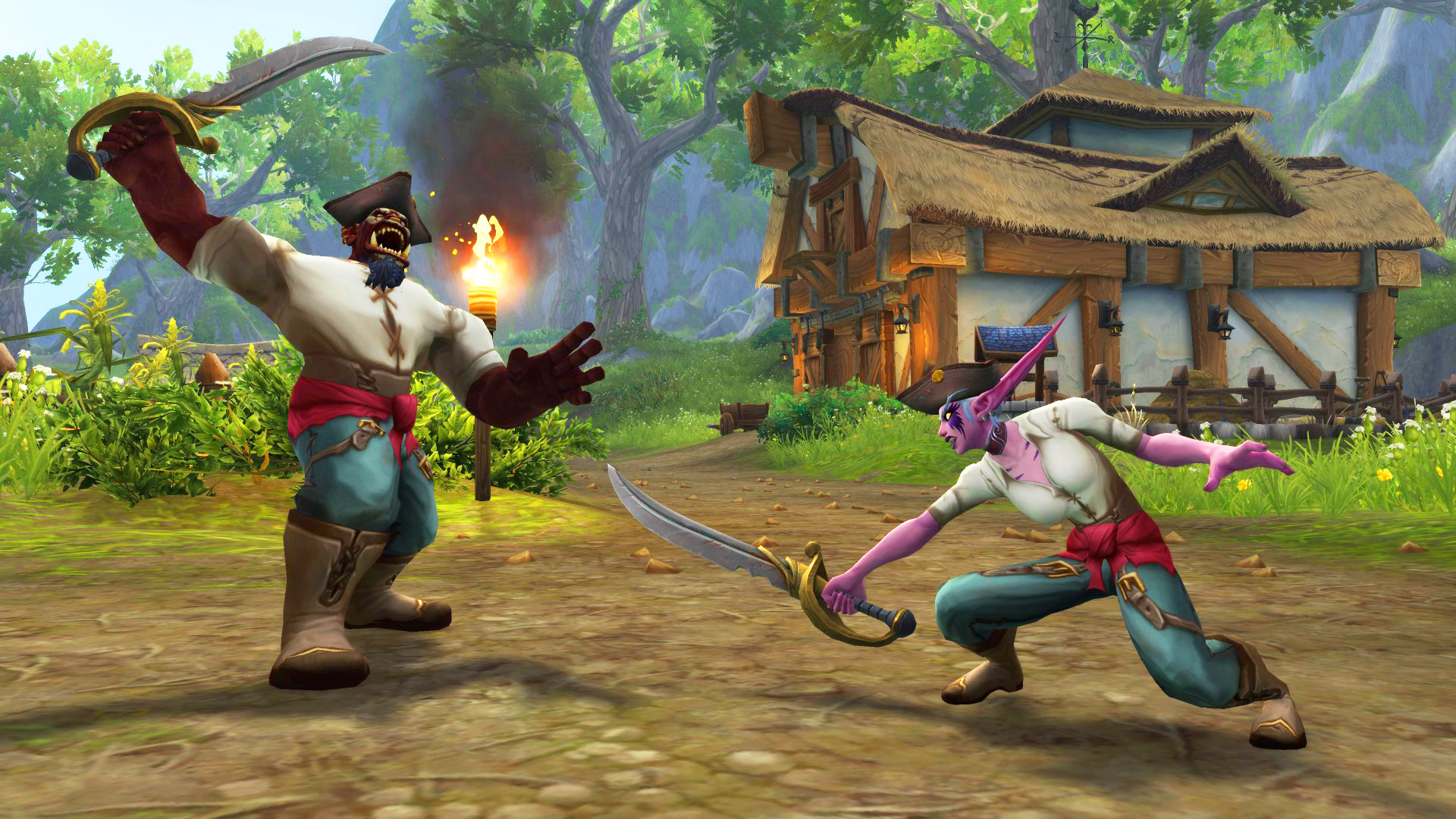World of Warcraft's executive producer says the game's recent maverick events like Plunderstorm and MoP: Remix are owed to a squad of madcaps called 'the live team'
"We started saying 'okay well, let's experiment'."

If you've been paying any attention to World of Warcraft in the past year or so, you'll have noticed that things are getting a little weird. Not in a bad way—in fact, while other MMORPGs would struggle with a content lull before their next big expansion, we're only a few months out from The War Within and there's never been so many ways to get your WoW fix.
Season of Discovery, several flavours of Classic including the approaching Cataclysm, Plunderstorm (to be soon replaced with the harebrained, private server energy of Mists of Pandaria: Remix)—oh yeah, and retail. There's a lot to do.
Speaking to executive producer Holly Longdale in a group interview during a World of Warcraft: The War Within preview event, myself and several other journalists got to talking with her about WoW's new era of experimentation—unsurprisingly, Longdale says there's a whole team dedicated to throwing delicious gameplay spaghetti at the wall.
"The expansions for World of Warcraft—they did their job, they were relatively reliable, and they worked," Longdale recalls. "And then they didn't work as well, particularly in Shadowlands where the content drought didn't work well for players." She's referring to patch 6.1, which took a horrifying 218 days to arrive. Mercifully, Dragonflight has had a healthy roadmap that's been, for the most part, stuck to religiously.
In particular, Longdale says that "we saw in our data that our casual and midcore players"—midcore being players who like a challenge, but are short on time—"were under-served—that's where late last year, we created the 'live' team. Their job is retention of the players that are under-served.
"We started saying 'okay well, let's experiment for them' ... and a lot of the stuff we did outperformed expectations."
As for what it is exactly that the live team does, Longdale says that their "remit is to remain agile. Those things have come together, by WoW team standards, very quickly—their job is to intake data, learn what players are doing, run surveys … and figure out what we can do to serve that community."
Keep up to date with the most important stories and the best deals, as picked by the PC Gamer team.
The live team, however, also presents an opportunity for the WoW to modernise itself by testing out new systems in less controlled environments, ones which don't have to worry too much about collapsing retail's labyrinth of interlocking systems. Longdale points out Plunderstorm's action-oriented, Guild Wars 2-style combat as a prime example:
"Part of our ethos is—we're 20 years on, how do we set ourselves up for the next 20? We wanna make sure we remain technologically modern. Like you probably noticed with Plunderstorm, it's a bit more action-oriented combat, we definitely broke some WoW rules", the best part? That innovation, Longdale notes, can be picked up or left as the team sees fit: "We may do something with it, we may not."

Harvey's history with games started when he first begged his parents for a World of Warcraft subscription aged 12, though he's since been cursed with Final Fantasy 14-brain and a huge crush on G'raha Tia. He made his start as a freelancer, writing for websites like Techradar, The Escapist, Dicebreaker, The Gamer, Into the Spine—and of course, PC Gamer. He'll sink his teeth into anything that looks interesting, though he has a soft spot for RPGs, soulslikes, roguelikes, deckbuilders, MMOs, and weird indie titles. He also plays a shelf load of TTRPGs in his offline time. Don't ask him what his favourite system is, he has too many.

